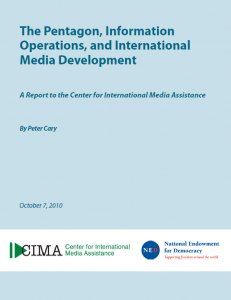Venezuela- US: For the record. The Caracas government seized two factories owned by U.S.-based glass maker Owens Illinois, because it caused “environmental damage and exploited workers,” Venezuelan President Hugo Chavez said on 25 October. Today Venezuelan soldiers took possession of the factories.
Venezuela-Middle East: President Chavez said his government and Libya are creating a $1 billion joint investment fund to pay for projects the two countries will pursue together, according to a report by The Associated Press. Chavez also announced a $100 million joint fund with Syria, which will be used on projects such as aid in the construction of an oil refinery and to establish an olive oil processing plant.
NIGHTWATCH Comment: Chavez invariably goes out of his way to make questionable deals with countries that tend to have strained relations with the US. None of his new allies are in a position to help Venezuela in the event of trouble, which calls into question the wisdom of the investments, the utility of the associations and the soundness of Chavez' judgment.
Phi Beta Iota: We beg to differ with our esteemed colleague. The US is so over-extended in its elective wars and occupations of Afghanistan and Iraq as to call into question its ability to be effective anywhere else, including against Somali pirates. Furthermore, the passing of time and the accumulation of public knowledge has a “truth” effect that may not lead to reconciliation but will lead to more and more expropriation of ill-gotten gains by predatory capitalists who in the past were able to call in the US Marines to enforce unethical, illegal, and unjust seizures of property. Just as Australia is now getting serious about Native Title, so also is the rest of the Southern Hemisphere going to get serious about expropriating back into indigenous possession those lands acquired through illicit or unethical means.
The next President, and the next Director of National Intelligence (DNI), are going to have to lead a 180 degree change in how the US “does” intelligence. Instead of producing 4% “at best,” the DNI is going to have to lead the integration of education, intelligence, and research so as to meet 96% “at worst” of the needs of the Nation in both restoring domestic prosperity and in achieving truth & reconciliation abroad. Absent such a redirection, the US will not survive in its present form to 2025…in our always humble opinion. This will require leaders with integrity who place the public interest foremost.
Review: War is a Racket–The Antiwar Classic by America’s Most Decorated Soldier
Review: Open Veins of Latin America–Five Centuries of the Pillage of a Continent
Review: SAVAGE CAPITALISM AND THE MYTH OF DEMOCRACY–Latin America in the Third Millennium
Review: Killing Hope–U.S. Military and C.I.A. Interventions Since World War II-Updated Through 2003
Review: Overthrow–America’s Century of Regime Change from Hawaii to Iraq (Hardcover)






